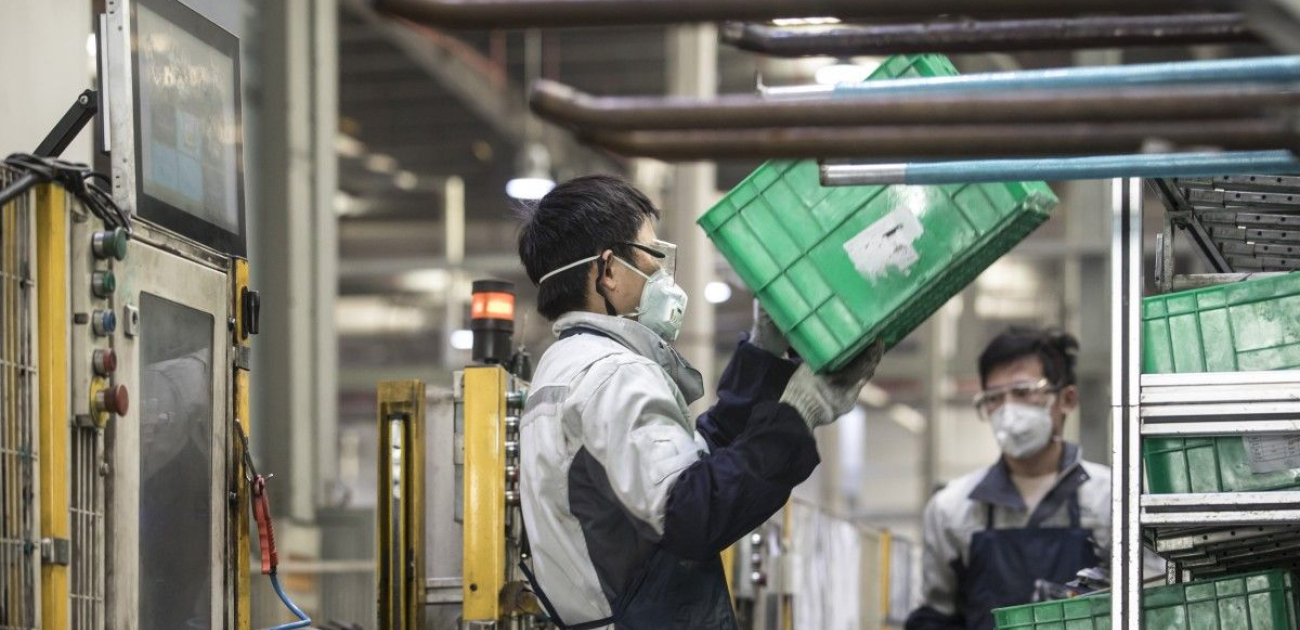Labor News Regulated in Royal Decree Law 8/2020 (BOE 18-3-20)
As we have already informed you in relation to various mercantile and fiscal issues, today, Wednesday, March 18, 2020, Royal Decree-Law 8/2020 has been published, on extraordinary urgent measures to face the economic and social impact of COVID-19, which, obviously, also regulates different labor aspects.
The Royal Decree-Law contemplates a specific definition of what must be understood as a situation of force majeure for the purposes of suspension of contracts and reductions in working hours. As provided in its article 22, it is established that those that have their direct cause in losses of activity as a consequence of COVID-19, including the declaration of the state of alarm, that entail the suspension or cancellation of activities, are considered as a situation of force majeure , temporary closure of premises, restrictions on public transport and, in general, on the mobility of people and / or goods, lack of supplies that seriously impede the continued development of the activity, or in urgent and extraordinary situations due to the contagion of the workforce or the adoption of preventive isolation measures decreed by the health authority.
The procedure for the ERTE for suspension and reductions in working hours due to force majeure will be as follows:
- Request from the company to be accompanied by a report relating to the loss of activity as a consequence of COVID-19, along with supporting documentation.
- Communication of the request to the workers and transfer the documentation to their representation;
- Optionally, the Labor Authority may request the issuance of a report by the Labor and Social Security Inspection that will be issued within 5 days;
- Resolution of the Labor Authority that will be issued within 5 days.
On the other hand, the Royal Decree Law, in its article 23 regulates those cases in which the companies process the suspension of the contract or temporary reduction of the working day for productive, technical and organizational causes related to the COVID-19, and foresees a series of specificities regarding the ordinary procedure. In these cases, the representative commission for the negotiation of the consultation period must be established within the non-extendable period of 5 days. If there is no legal representation of the workers, it will be integrated by the most representative unions in the sector to which the company belongs and with legitimacy to form part of the negotiating commission of the applicable collective agreement. The commission will be made up of one person for each of the unions that meet these requirements, making decisions by the corresponding representative majorities. If said representation is not established, the commission will be made up of three workers from the company itself, elected in accordance with the provisions of article 41.4 of the Workers' Statute (ET). In these cases, the consultation period should not exceed the maximum period of 7 days, and the report of the Labor and Social Security Inspection, whose request will be optional for the labor authority, will be evacuated within the non-renewable period of 7 days.
Extraordinary measures are also taken in relation to contributions.
Thus, it is foreseen that in the records of suspension of contracts and reduction of working hours authorized on the basis of temporary force majeure linked to COVID-19, although they have been communicated before this Royal Decree-Law:
- For those companies that as of February 29, 2020, had less than 50 employees, the TGSS will exempt the payment of the business contribution to Social Security in its entirety, as well as the one related to quotas for joint collection concepts, while it lasts the period of suspension of contracts or reduction of working hours authorized based on said cause.
- For companies with more than 50 employees, said exemption from listing will reach 75% of the business contribution.
The exemption will not generate effects for the worker, said period being effectively quoted for all purposes.
Likewise, an extraordinary benefit for cessation of activity is foreseen for those affected by a declaration of the state of alarm for self-employed or self-employed workers, whose activities are suspended, when their turnover in the month prior to which the benefit is requested is reduced , at least 75% in relation to the average turnover of the previous semester. Said extraordinary benefit will be determined by applying 70% to the regulatory base.
If the minimum contribution period is not credited, the amount of the benefit will be equivalent to 70% of the minimum contribution base in the RETA or in the Special Scheme for Sea Workers.
Additionally, the Royal Decree-Law introduces extraordinary measures in the area of unemployment protection in application of the procedures for contract suspensions and reductions in hours related to COVID-19, such as the recognition of the right to contributory unemployment benefit to individuals. Workers affected even if they lack the minimum contribution period, or not compute the time in which the benefit is received in order to consume the maximum periods of perceived payment.
In any case, it is anticipated that said extraordinary measures will be subject to the company's commitment to maintain employment for a period of six months from the date of resumption of activity.
On the other hand, the Royal Decree establishes the preferential and priority nature of the implementation of remote work (teleworking) over the adoption of temporary cessation measures or reduction of activity (art. 5). Companies are obliged to take appropriate measures to implement remote work if this is technically and reasonably possible and if the adaptation effort is proportionate.
Likewise, Article 6 establishes the right to adjust hours and reduce working hours for workers who demonstrate care duties with respect to the spouse or common-law partner, as well as to relatives by blood relationship up to the second degree.
As indicated, it is understood that exceptional circumstances occur, among others, when the worker is required for personal and direct care as a consequence of the COVID-19 or derived from the closure of educational centers or of any other nature that dispensed care or attention. to the person in need.
It is an individual right of each of the parents or caregivers.
As provided, this right may refer to the distribution of work time or any other aspect of working conditions, the alteration or adjustment of which allows the worker to provide care and attention (shift changes, alternation of hours, flexible hours). , telecommuting, etc.).
The aforementioned article also regulates that workers will have the right to a special reduction in the working day in the situations provided for in article 37.6 of the ET when the exceptional circumstances of care occur, with the proportional reduction of their salary. Said reduction of special working day must be communicated to the company 24 in advance, and may reach 100% of the working day if necessary.
Lastly, it establishes that in the event that the worker is already enjoying an adaptation of their working day due to conciliation, or a reduction in working hours for child or family care, or any of the conciliation rights provided in the labor law. , including those established in article 37 itself, you may temporarily renounce it or you will have the right to have the terms of your enjoyment modified so that it can better accommodate exceptional circumstances.
Finally, it is established that the validity of all these measures is one month from the entry into force -that is, March 18, 2020-, without prejudice that it can be extended by Royal Decree. However, the extraordinary measures related to ERTES, Social Security contributions and unemployment will remain in force as long as the extraordinary situation derived from COVID-19 is maintained.
Do you want more information?
 Victor Bescós
Victor BescósMr. Bescòs thinks that the Labor Lawyer does not just have to focus on the legal question.

